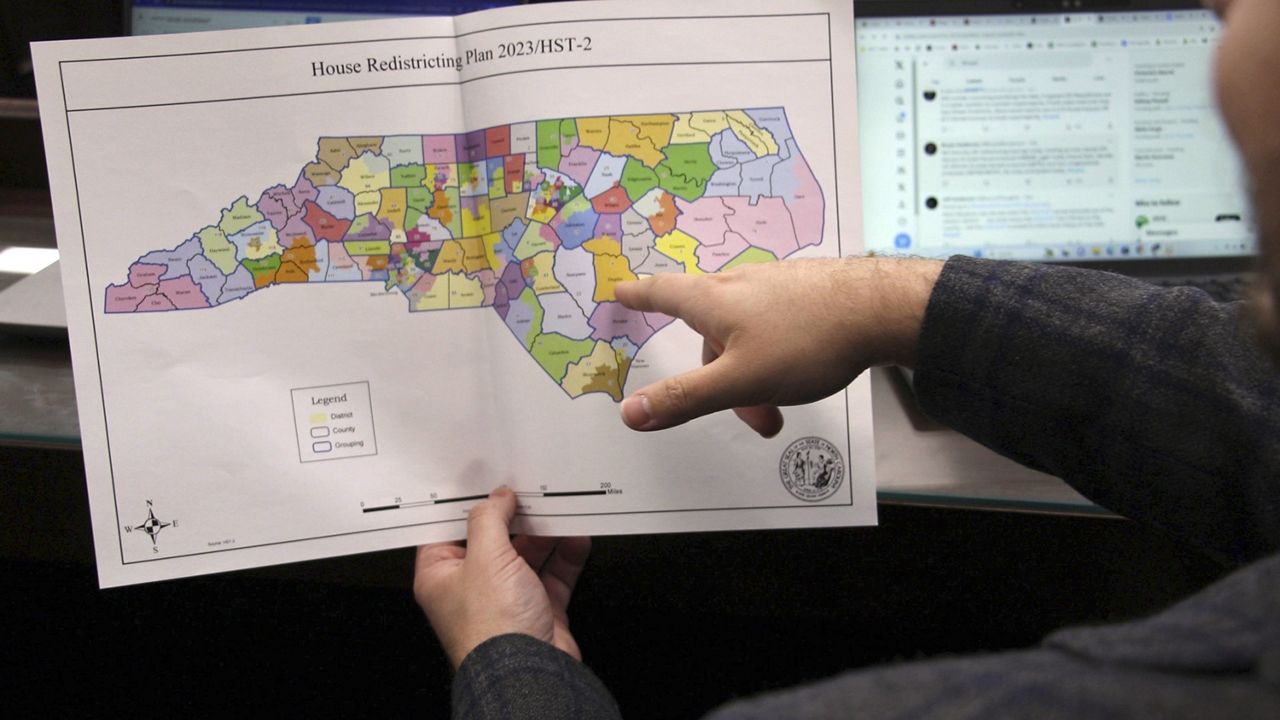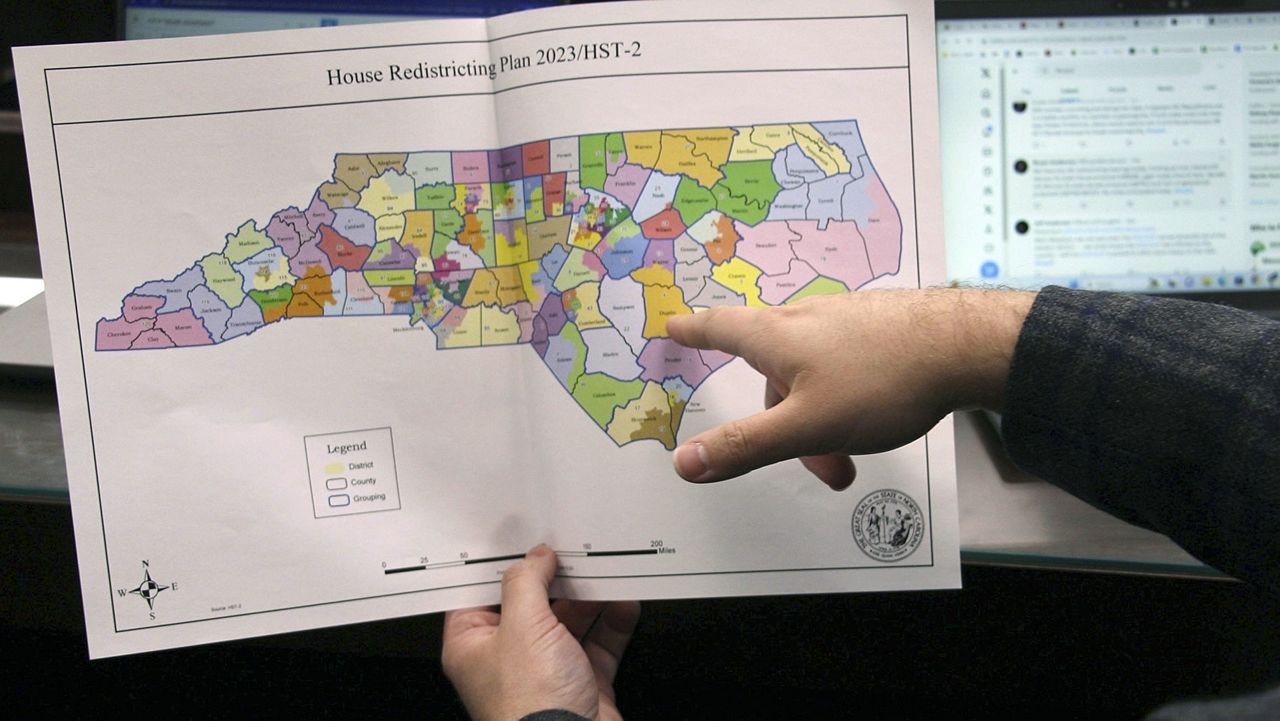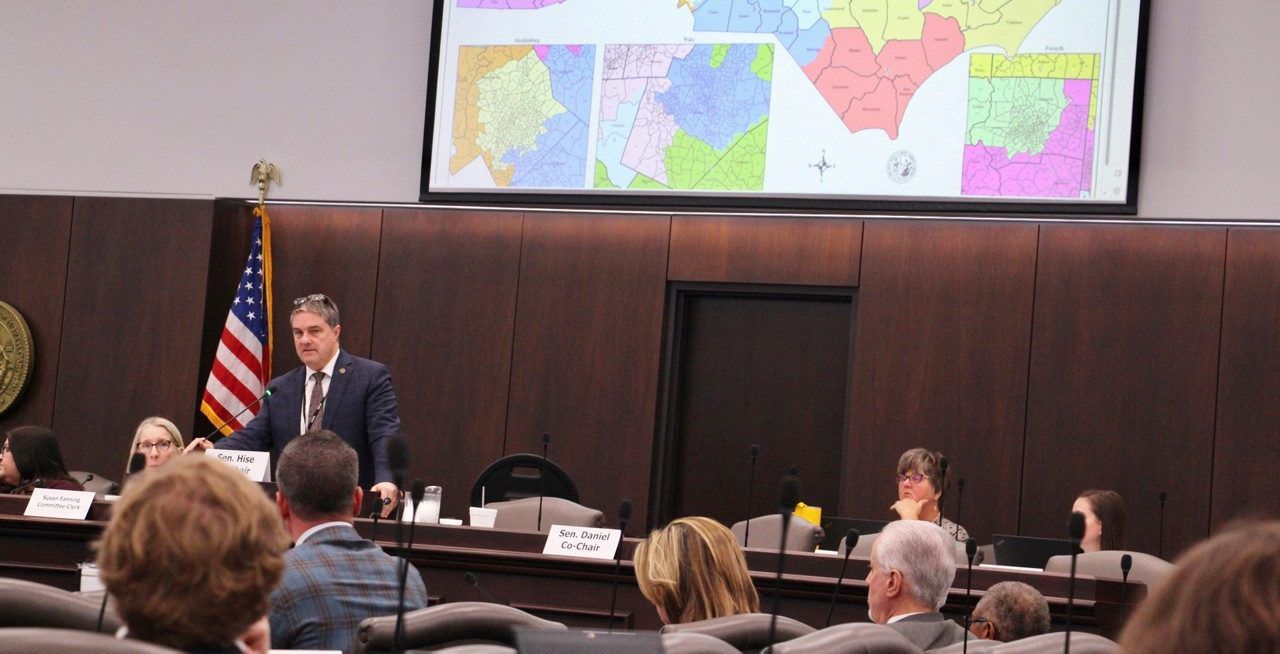RALEIGH, N.C. (AP) — A North Carolina judge refused on Tuesday to essentially force state lawmakers to start over on this year’s redistricting of General Assembly districts, saying he can’t turn back the clock on the process that was used and led to new seat boundaries.
- Superior Court Judge Graham Shirley rules he will not essentially force state lawmakers to start over on this year’s process of redistricting General Assembly districts
- Shirley says he is not, however, making any judgement on the actual lawfulness of the enacted maps through this ruling
- At least three other pending lawsuits challenge North Carolina’s new legislative lines, U.S. House map or both as illegal partisan or racial gerrymanders
- The lawsuit heard Tuesday, however, took on the drawing parameters agreed to by Republicans, not the resulting maps
But the trial judge, who denied motions in litigation from advocacy groups and voters complaining about how the Republican-controlled legislature ignored race-based voter data, emphasized he wasn’t making any judgment on the actual lawfulness of the enacted maps.
At least three other pending lawsuits challenge North Carolina’s new legislative lines, U.S. House map or both as illegal partisan or racial gerrymanders. A hearing on at least two of those suits is scheduled for Friday, three days before candidate filing for the March primary under new districts is scheduled to begin.
The lawsuit heard Tuesday, however, took on the drawing parameters agreed to by Republicans, not the resulting maps.
“Nothing I have said, nor should this order be construed as any opinion of the court on the constitutionality or validity of the maps that have been passed,” Superior Court Judge Graham Shirley said while also dismissing the lawsuit as moot. “This is a very narrow issue.”
The state NAACP, Common Cause and several voters sued in late October, days before legislators started voting on state House and Senate plans. They alleged Republicans were poised not to follow a recipe set in the 2000s by the state Supreme Court designed to ensure legislative district lines could comply with both the state constitution and the U.S. Voting Rights Act.
They cited in large part the legislators’ refusal to consider data such as Black voting-age population percentages in a region or to evaluate the presence of racially polarized voting in the state while drawing maps.
Common Cause provided evidence that “voters of color were going to be denied their ability to elect candidates of choice, and the legislative defendants ignored it just like that,” plaintiffs’ attorney Hilary Harris Klein told Shirley. “So here in this case, the process matters, and this case shows why.”
Shirley said the state House and Senate maps, enacted by voters in the first week of November, are presumed to be constitutional, and pointed out the lawsuit doesn’t challenge the actual boundaries that were approved.
Instead, the plaintiffs are “essentially asking this court to undo what has already been done,” Shirley said in rejecting requests to send lawmakers back to the drawing board and to delay the primary until May.
Still, the judge questioned how lawmakers could ensure they drew legislative districts that comply with the Voting Rights Act without examining racial demographic data before the maps are completed.
“So what you’re telling me is someone threw a dart and it hit the intended target even though they had a blindfold on, and because of that, it complies?” Shirley asked Phil Strach, a lawyer representing Republican lawmakers who wanted the lawsuit dismissed. Republicans have pointed repeatedly to state maps drawn in the late 2010s without such data that courts signed off on.
The legislative defendants believe the latest maps, based on 2020 census figures, comply with the Voting Rights Act,” and if a court tells us otherwise we’ll modify them,” Strach said.
After the ruling, House Speaker Tim Moore said on social media that the case was “frivolous from the start and was rightly dismissed” and that he looked “forward to candidate filing Monday without delay.”
Shirley has already been named to a panel of three trial judges that will hear arguments Friday in other redistricting litigation, which was filed after the lines were voted on. It’s possible the panel could rule on motions before Monday.
One of the lawsuits, filed by the North Carolina League of Conservation Voters, mathematicians and voters, challenges both the legislative and congressional maps.
The plaintiffs accuse GOP legislators of unlawful gerrymandering that would help Republicans retain their General Assembly majorities and hold at least nine of the state’s 14 U.S. House seats in 2022, even as North Carolina is considered closely divided in statewide elections.
Another lawsuit challenges the state’s U.S. House map as an “extreme partisan gerrymander.” It was filed by voters supported by a group affiliated with the National Democratic Redistricting Committee.








